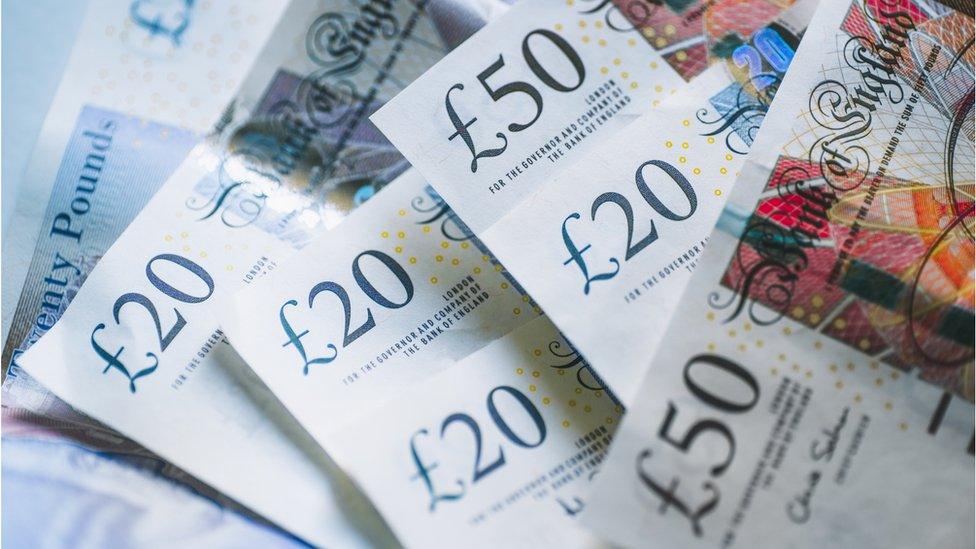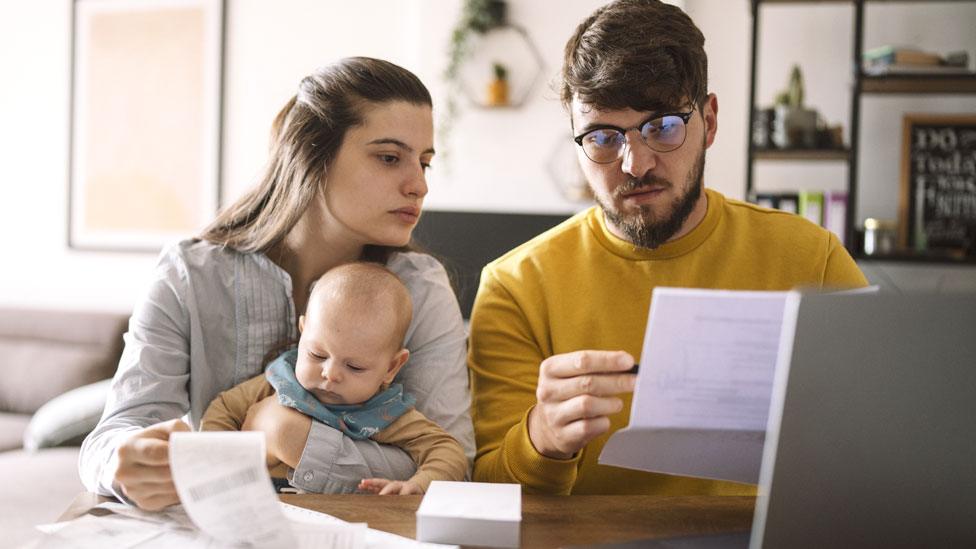Can government claim credit for fall in inflation?
- Published
- comments

This morning the prime minister tweeted: "In January we said we'd halve inflation. Today we've done that - inflation is now 4.6%."
When inflation started to accelerate early in 2022, Rishi Sunak as chancellor attributed the rise to global factors. Now as prime minister, he's claiming it as a success for government policy that it's come down.
However, leading economists are sceptical that the halving of inflation compared to last year has much to do with any government plan - or indeed is something within the government's power.
Paul Johnson, director of the IFS, an influential economics think tank, said: "The job of cutting inflation is for the Bank of England not the government. So it was always inappropriate for the government to have a target/pledge to halve inflation.
"That's not their job and not something over which they have a lot of control. It was an opportunistic pledge given the fact that Bank was, in January, forecasting that inflation would easily halve."
Falling energy prices
The Office for National Statistics (ONS) points this morning to lower energy costs as the biggest factor pulling inflation down - a global, not a domestic factor. Economists have predicted for more than a year that the difference between prices now and prices a year ago would shrink once the big hikes in energy bills of October 2022 were more than a year in the past.
Since then, as predicted, wholesale gas prices have dropped sharply and gas costs are down 31% - the sharpest drop since 1989 - and electricity prices are down by 15.6%. That was the biggest downward pressure on this October's inflation figure followed by food.
Those factors have little to do with domestic fiscal policy and much more to do with an easing of global inflationary pressures - as reflected in other countries, such as France, where the official measure of inflation is now 4.5% - or the US, where it's 3.2%.
Bringing inflation down is officially the job not of the government but the Bank of England, which is expected to regulate inflation through monetary policy - meaning measures such as raising or cutting interest rates.
The government does have control over fiscal policy - meaning taxes and spending. Chancellor Jeremy Hunt's office said the plan to halve inflation includes being disciplined on spending, resisting calls for reckless borrowing, and helping people back into work to address the high number of job vacancies - one of the main domestic drivers of inflation.
It's true of course that if the government had borrowed and spent recklessly inflation might have been worse; but that has its greatest effect on the public finances, not inflation.
Measures such as keeping public sector pay settlements limited to 5-7%, as opposed to paying inflation-linked rises, will have meant slightly less spending. But that's a mere percentage point or two of the public sector pay budget - a matter of a few billions, compared to total overall government spending of £1.19 trillion.
Income tax effect?
Ironically, the main fiscal measure which may well have had a big effect on inflation is raising much more from households in income tax.
"It is right to say the government hasn't made things worse since January: no big new tax cuts or spending increases," says Mr Johnson. "The main thing government has done to reduce inflationary pressure has been to raise income tax a lot - not that that was the purpose of the increase, it is there for public finance reasons."
By freezing tax thresholds while wages are rising faster than they have in decades, Jeremy Hunt's raising far more in tax and national insurance each year - leaving less money for families to spend, and therefore reducing upward pressure on prices.
However, raising taxes isn't listed as part of the government's official inflation reduction plan.
Related topics
- Published15 November 2023

